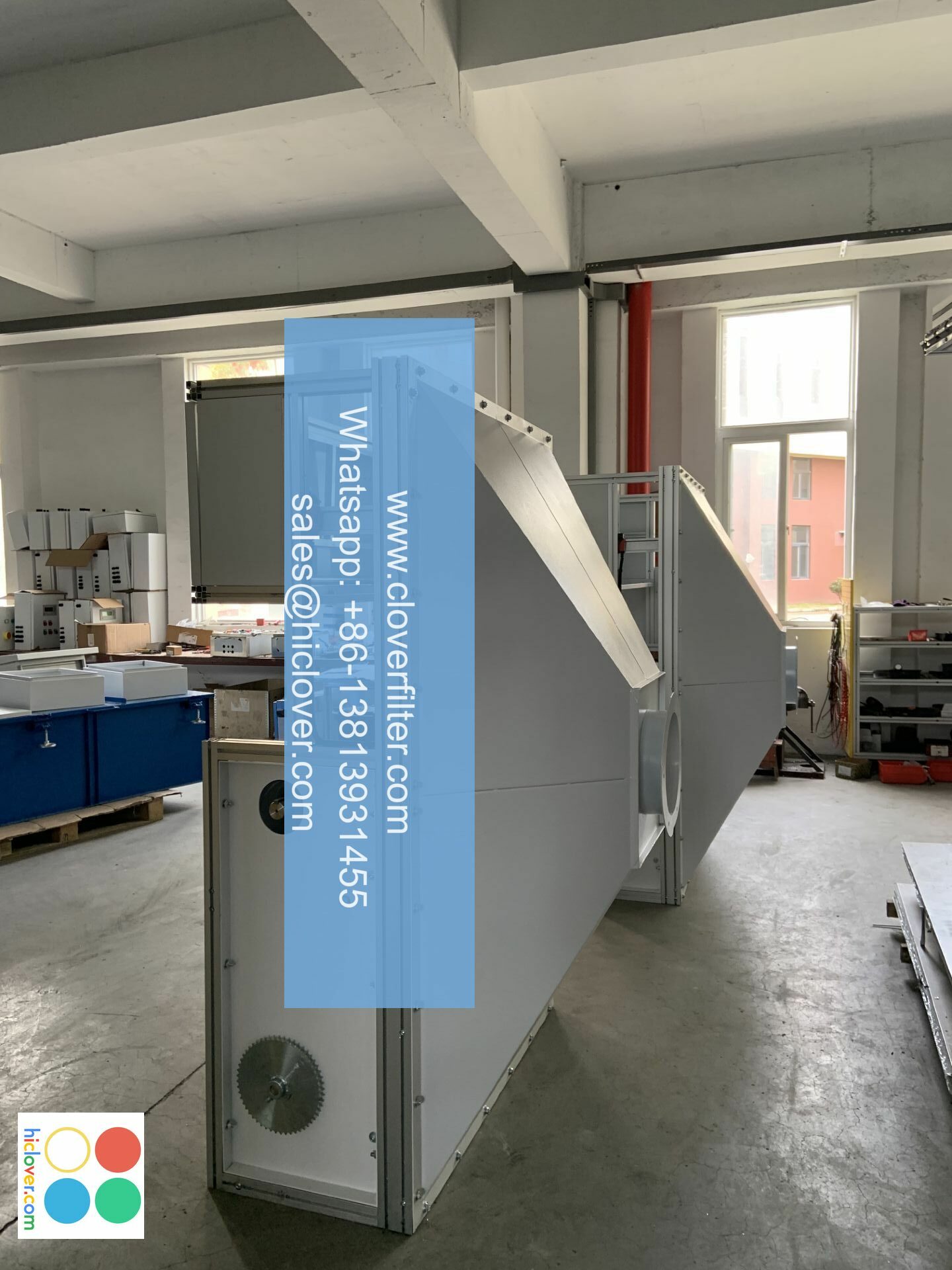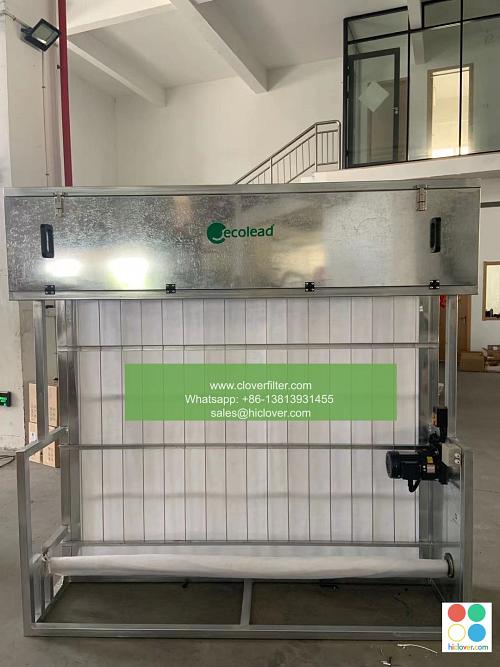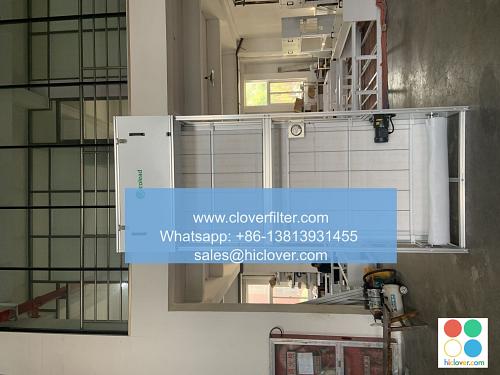Minimizing Airborne Particles with Automatic Roll Air Filters in Quebec Pharmaceutical Cleanrooms

Pharmaceutical cleanrooms in Quebec are required to maintain the highest standards of air quality to ensure the production of safe and effective medications. One of the most critical factors in achieving this is minimizing airborne particles, which can contaminate products and compromise patient safety. Automatic roll air filters have emerged as a highly effective solution for controlling airborne particles in these environments.
Traditional air filtration systems often rely on manual replacement of filters, which can be time-consuming and may not provide consistent results. In contrast, automatic roll air filters offer a continuous and automated process for removing airborne particles. These systems use a roll of filter media that is automatically advanced as the existing filter becomes saturated, ensuring a consistent and high level of air quality.
The benefits of automatic roll air filters in pharmaceutical cleanrooms are numerous. Firstly, they provide a significant reduction in airborne particles, which is critical for preventing contamination and ensuring product integrity. Secondly, they offer a high level of consistency and reliability, eliminating the risk of human error associated with manual filter replacement. Additionally, automatic roll air filters can be designed to meet the specific needs of each cleanroom, taking into account factors such as air flow rates, particle sizes, and filter efficiency.
In Quebec, pharmaceutical companies are subject to strict regulations and guidelines governing the production of medications. The use of automatic roll air filters can help these companies meet and exceed these standards, demonstrating their commitment to patient safety and product quality. Furthermore, the implementation of these systems can also lead to cost savings and increased efficiency, as the automated process reduces the need for manual labor and minimizes waste.
When selecting an automatic roll air filter for a pharmaceutical cleanroom in Quebec, there are several factors to consider. The filter media should be designed to capture particles of the smallest sizes, typically 0.1 microns or larger. The system should also be designed to provide a high level of air flow, typically measured in cubic feet per minute (CFM), to ensure adequate ventilation and particle removal. Additionally, the system should be easy to install, maintain, and validate, with features such as automatic filter advancement, pressure gauges, and alarm systems.
In terms of maintenance and validation, automatic roll air filters require regular monitoring and testing to ensure they are functioning correctly. This includes verifying the filter’s efficiency, checking for leaks or damage, and replacing the filter media as needed. The use of data logging and monitoring systems can also provide valuable insights into the performance of the filter, allowing for prompt identification and correction of any issues.
The use of automatic roll air filters in pharmaceutical cleanrooms is not limited to Quebec, but is a global best practice for maintaining high standards of air quality. Companies such as Pfizer, Merck, and Johnson & Johnson have all implemented these systems in their facilities, demonstrating the importance of minimizing airborne particles in the production of medications.
In conclusion, automatic roll air filters offer a highly effective solution for minimizing airborne particles in pharmaceutical cleanrooms in Quebec. By providing a continuous and automated process for removing airborne particles, these systems can help ensure the production of safe and effective medications, while also meeting and exceeding regulatory standards.
Conclusion
In summary, the use of automatic roll air filters is a critical component of maintaining high standards of air quality in pharmaceutical cleanrooms. By reducing airborne particles, increasing consistency and reliability, and meeting regulatory standards, these systems can help ensure the production of safe and effective medications. As the pharmaceutical industry continues to evolve, the importance of minimizing airborne particles will only continue to grow, making automatic roll air filters an essential tool for companies in Quebec and around the world.
Frequently Asked Questions (FAQs)
Q: What is the typical lifespan of an automatic roll air filter?
A: The lifespan of an automatic roll air filter can vary depending on factors such as air flow rates, particle sizes, and filter efficiency, but typically ranges from 6 to 12 months.
Q: Can automatic roll air filters be customized to meet specific cleanroom requirements?
A: Yes, automatic roll air filters can be designed to meet the specific needs of each cleanroom, taking into account factors such as air flow rates, particle sizes, and filter efficiency.
Q: How often should automatic roll air filters be maintained and validated?
A: Automatic roll air filters should be regularly monitored and tested to ensure they are functioning correctly, with maintenance and validation typically performed every 1-3 months.
Q: Are automatic roll air filters suitable for use in all types of pharmaceutical cleanrooms?
A: Yes, automatic roll air filters can be used in a variety of pharmaceutical cleanrooms, including those used for the production of tablets, capsules, and injectable medications.


